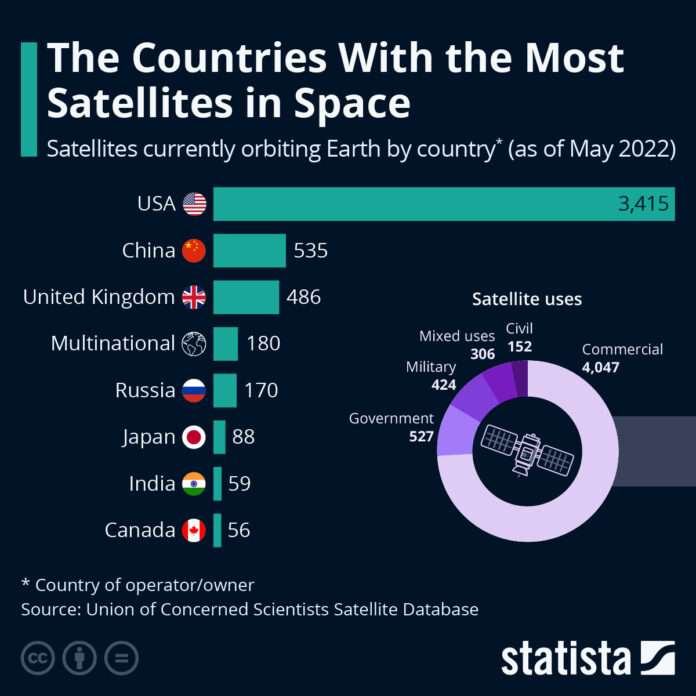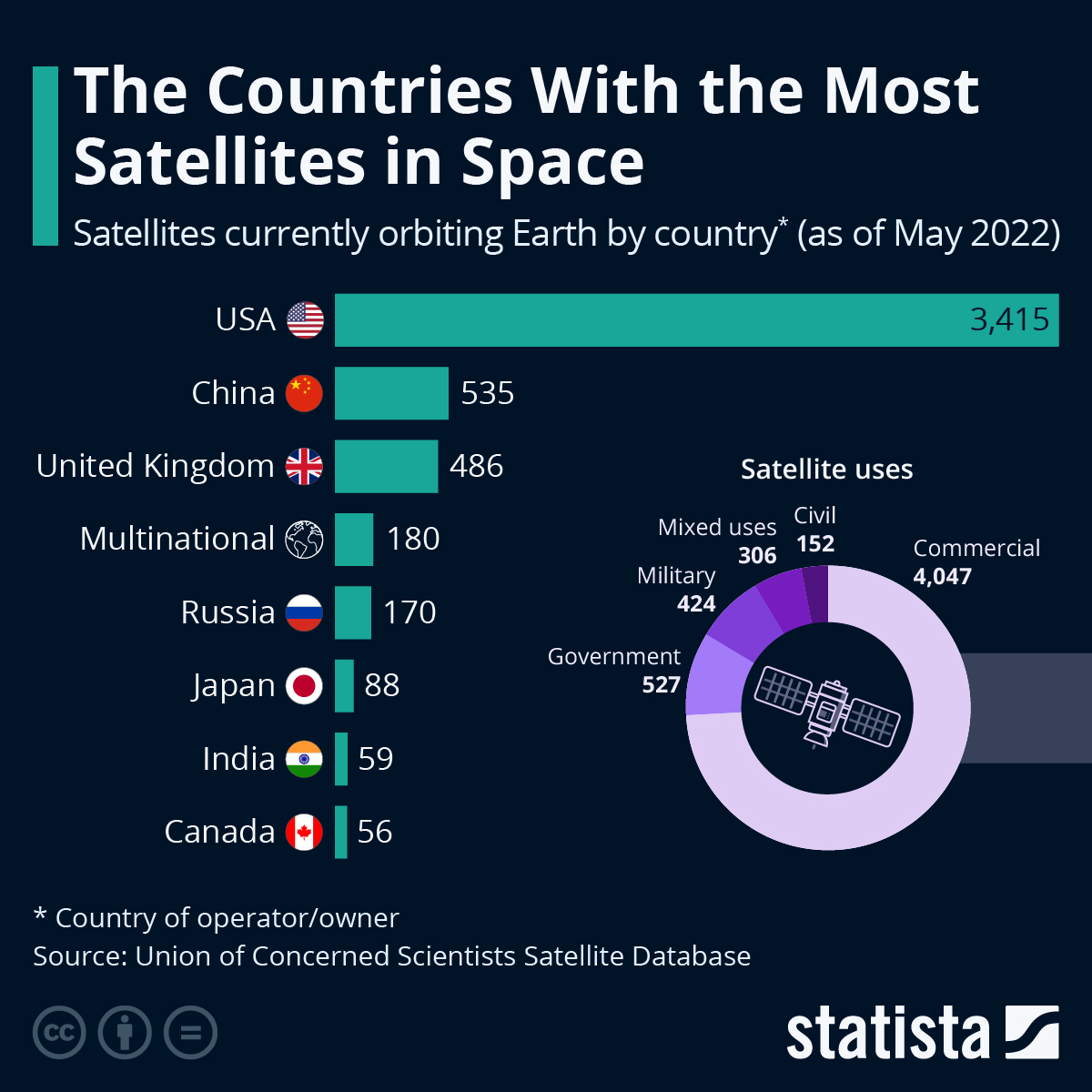The race for space has started anew as a flurry of private and government projects are once again reaching for humanity’s last frontier. In April, Gen. Chance Saltzman of the U.S. Space Force said that the new level of activity seen in space exploration was also increasing the level of threat the United States faces in Earth’s orbit and beyond, as reported by CNBC.
As Statista’s Katharina Buchholz notes, Saltzman’s remarks – and as some may argue, the existence of the U.S. Space Force itself – stands in contrast to the notion of space as a place beyond national interests that has thrived on collaboration rather than confrontation.
When the branch of the U.S. military was founded under President Donald Trump in 2019, one of the first organizations to speak out against it was the Union of Concerned Scientists, a science advocacy nonprofit founded at the Massachusetts Institute of Technology.
You will find more infographics at Statista
The organization urged the U.S. government to reconsider and to warm up to the idea of space as a place where different nations coexist peacefully instead of a place where war takes place. The group with an extensive satellite database pointed out that military activity was only a minor part of all things happening in space. The data backs up this claim. Out of the roughly 5,500 satellites listed as active, only 424 have military uses. While the U.S. is the country with most satellites in space (3,415), multinational cooperations come in fourth place.








